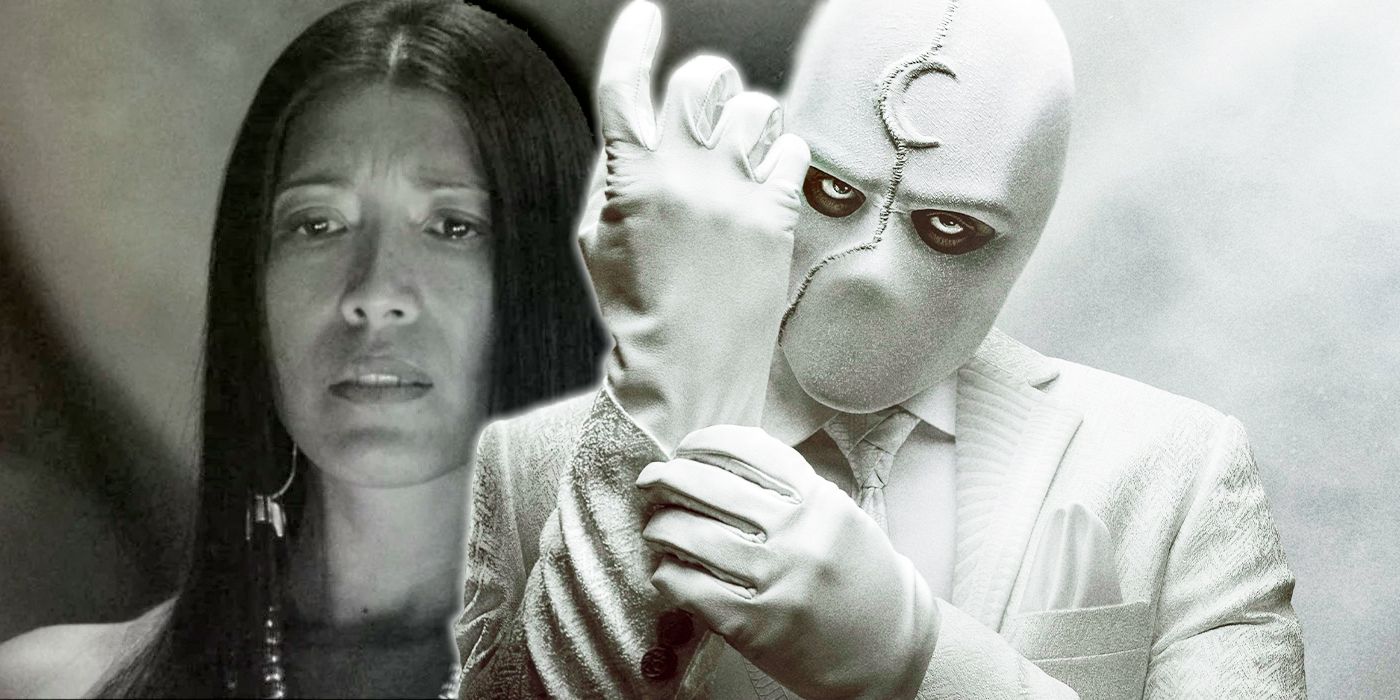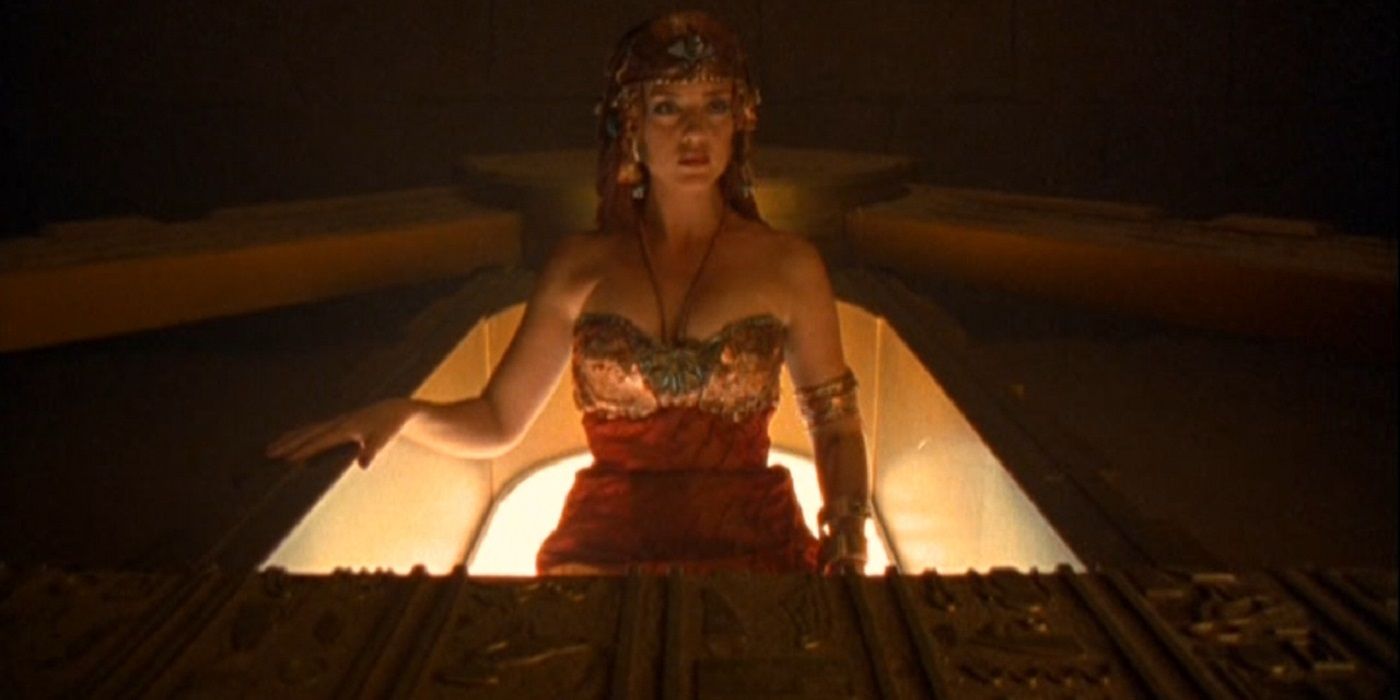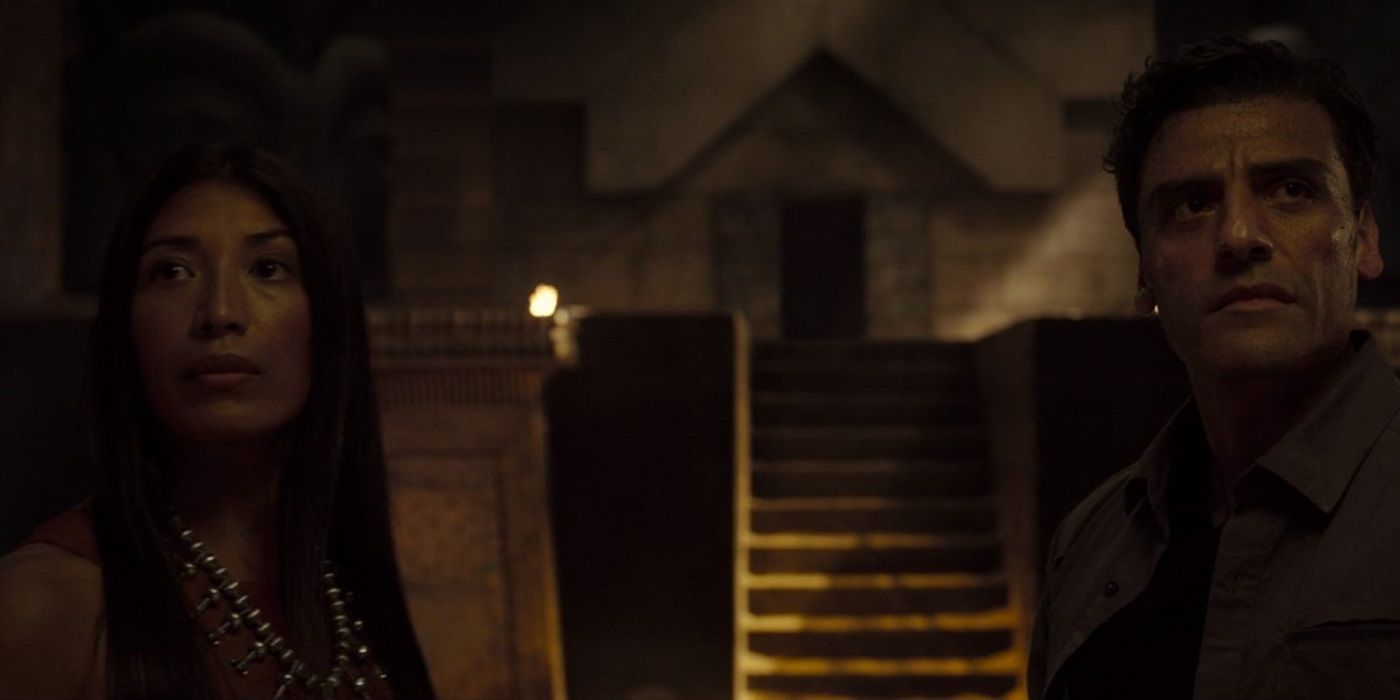The following contains spoilers for Moon Knight, Episode 4, "The Tomb," now streaming on Disney+.
Moon Knight makes extensive use of figures from Egyptian mythology reinterpreted for the Marvel Cinematic Universe. Beyond Moon Knight’s fickle sponsor Khonshu and nihilistic adversary Ammit, an entire pantheon of deities presides indifferently over the events of the series. Most of them are anonymous and interchangeable, but one – Hathor – stands out from the rest. She speaks to Khonshu and his avatar before their appearance before the “court” of gods in Season 1, Episode 3, “The Friendly Type,” and seems sympathetic towards him in general. It suggests a larger role for her in the last few episodes of the season, possibly acting as an ally just when Moon Knight needs one the most.
That’s in keeping with her mythic persona, upon which Moon Knight draws at least a little for its inspiration. Egyptian mythology might give a clue to her future actions in the series, as well as shedding light on her motives for helping Khonshu, which have remained largely a mystery thus far. Her worshippers revered her as a popular and beloved figure.
According to Rosicrucian Egyptian Museum, Hathor was the daughter of Ra the Sun God, and represented the many pleasures in life. That included everything from love, music and beauty to dancing and fertility. She was married to Horus, the Avenger, who defended humanity from the evil god Set and represented the pharaohs themselves. That made for quite a power couple, and the myths largely presented the two in the best possible light.
Surprisingly, Moon Knight isn’t the first time the character has appeared in modern pop culture. The Stargate SG-1 TV series posited Egyptian deities as alien parasites, possessing human forms and relying on advanced technology to present themselves as deities. Suanne Braun portrayed Hathor as a kind of Squick Queen Mother, intending to create a new breed of servants from the parasites breeding in her possessed belly. Elodie Yung played Hathor in the 2016 epic Gods of Egypt, a much more heroic role in keeping with her mythic persona.
The Egyptian gods in Moon Knight are schemers and fence sitters, quietly enabling Ammit’s return while claiming to have no interest in the outcome. Much of that appears to stem from Khonshu, the pantheon’s bad boy, who summons the court in “The Friendly Type” in an effort to halt Ammit’s servant Harrow only to find it all blowing up in his face. It’s Hathor who salvages the situation. Represented by her avatar Yatzil, she first gives Spector/Khonshu advice on speaking to the court, then drops a key clue afterwards to ensure that he can continue the fight after the gods reject his appeal.
It remains to be seen what effect that will have in the last two episodes. Comparatively little is known about either Hathor or Yatzil beyond the court scene itself, but dialogue states that she and Khonshu used to be friends, and that she's disappointed to learn that he didn’t speak of her. That said, betrayal or duplicity would not be in keeping with mythic representations of the character, and Moon Knight doesn’t appear to be moving in that direction.
Mythic deities are suddenly the new hotness in the MCU, with Thor: Love and Thunder bringing the Greeks into the equation for the first time. Moon Knight has staked out a place for its pantheon amid that, though its passive nature makes them far less flashy than either the Greeks or the Asgardians seem to be. That makes Hathor all the more important: a window not only into who the Egyptian gods are in the MCU, but how they may interact with it in the future.
New episodes of Moon Knight air every Wednesday on Disney+.



